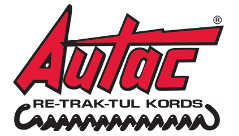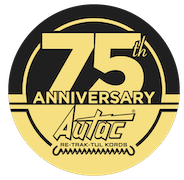Extension cords are not designed to be exposed to water or moisture. It’s important to keep extension cords dry and protected from wet conditions to ensure safety and prevent potential hazards. Water can damage the insulation and components of an extension cord, increasing the risk of electrical shock or fire.
Here are some important points to keep in mind:
Outdoor Use:
If you need to use an extension cord outdoors, make sure to choose one that is specifically designed for outdoor use. Outdoor extension cords have weather-resistant insulation and are more equipped to handle exposure to elements like rain and moisture.
Indoor Use Only:
Standard indoor extension cords should never be used in wet or damp conditions. Keep them indoors and away from areas where they might come into contact with water.
Avoid Puddles and Moisture:
When using extension cords outdoors or in potentially damp areas, ensure that they are placed away from puddles, wet surfaces, and any sources of moisture. Elevate the cords if necessary to prevent water from coming into contact with them.
GFCI Protection:
If you need to use extension cords in outdoor areas where moisture is a concern, consider plugging them into Ground Fault Circuit Interrupter (GFCI) outlets. GFCIs are designed to quickly shut off power if they detect a ground fault or current leakage, helping to prevent electrical shocks.
Regular Inspection:
Periodically inspect your extension cords for signs of wear, damage, or exposed wires. If you notice any issues, replace the cord immediately.
Use Cord Covers:
If you need to run extension cords across areas where they might be exposed to foot traffic or potential water splashes, consider using cord covers to provide an extra layer of protection.
Unplug When Not in Use:
When you’re done using an extension cord, unplug it from the outlet. This not only conserves energy but also reduces the risk of any potential hazards, especially in wet conditions.
Things To Consider Before Buying High quality Extension Cord
Investing in a high-quality extension cord can save you from potential electrical hazards and ensure reliable power distribution. Here are important factors to consider before buying a high-quality extension cord:
Cord Gauge (AWG):
The gauge of the cord determines its current-carrying capacity. Thicker cords (lower AWG number) can handle higher power loads. For heavy appliances, choose a lower AWG rating to prevent overheating.
Length:
Choose a length that suits your needs. Longer cords can experience voltage drops, so pick an appropriate length without excess that can affect performance.
Indoor vs. Outdoor Use:
Different cords are designed for indoor or outdoor use. Outdoor cords have weather-resistant insulation and can handle moisture, sunlight, and temperature variations.
Power Requirements:
Determine the total wattage of the devices you’ll plug into the cord. The cord’s wattage capacity should exceed this total to prevent overloading.
Outlets and Plug Types:
Check if the cord has enough outlets and the right plug types (e.g., grounded, polarized) for your devices.
Safety Features:
Look for cords with built-in surge protection, GFCI (Ground Fault Circuit Interrupter) outlets, and UL (Underwriters Laboratories) or ETL (Intertek) certification for safety and quality assurance.
Cord Material:
High-quality cords have durable, flexible, and heat-resistant materials. Rubber and vinyl are common choices.
Jacket Protection:
A sturdy outer jacket protects the internal wires from wear and damage. It should withstand abrasion and potential hazards.
Rating for Amps and Volts:
Ensure the cord is rated to handle the amperage and voltage of your devices. Higher-quality cords are usually rated for higher values.
Heavy-Duty vs. Light-Duty:
Determine if you need a heavy-duty cord for power-hungry tools or a light-duty cord for smaller electronics.
Temperature Range:
Consider the temperature range the cord can handle, especially if you plan to use it in extreme weather conditions.
Brand and Reputation:
Opt for reputable brands known for producing high-quality electrical products.
Warranty:
A good warranty indicates the manufacturer’s confidence in their product’s durability and performance.
Price vs. Value:
While high-quality cords might be pricier, they provide safety, reliability, and longevity, making them a worthwhile investment.
User Reviews:
Check online reviews to gauge real-world experiences of other users with the cord you’re considering.
Certifications:
Look for cords that comply with safety standards set by organizations like UL or ETL.
AutacUSA: Reliable Cord Dealer
AutacUSA is a reputable company known for manufacturing high-quality cords, including retractile cords. Their specialized design allows for tangle-free usage and easy storage, and their commitment to durability, safety, and customization sets them apart. With a focus on innovation, AutacUSA continues to lead in providing reliable solutions for various cord needs.
Frequently Asked Questions
Are extension cords safe in the rain?
No, using extension cords in the rain is not safe. Water and electricity are a dangerous combination that can lead to electrical shocks and potential hazards. To prevent accidents, always keep extension cords dry and avoid exposing them to wet conditions.
Can outdoor extension cords be left in the rain?
Leaving outdoor extension cords in the rain is not recommended. Water can infiltrate the cord’s insulation and potentially cause electrical hazards. To ensure safety and prevent damage, it’s best to keep outdoor extension cords protected from rain and moisture. If you need to use them outdoors, consider using weatherproof covers or enclosures to shield the cords from water exposure.
Conclusion
The relationship between extension cords and water is a crucial one to understand for the sake of safety and the longevity of your electrical devices. Extension cords are not designed to withstand exposure to moisture, and water can compromise their insulation, leading to potential electrical hazards and damage. Whether you’re using extension cords indoors or outdoors, it’s essential to prioritize keeping them dry and protected from wet conditions.
By following safety guidelines, investing in outdoor-rated cords when needed, and being mindful of the environments in which you use extension cords, you can ensure the safe and efficient operation of your electrical equipment. Remember, prevention is key when it comes to electrical safety, and avoiding wet conditions is a simple yet powerful step to safeguarding yourself and your devices.




Recent Comments